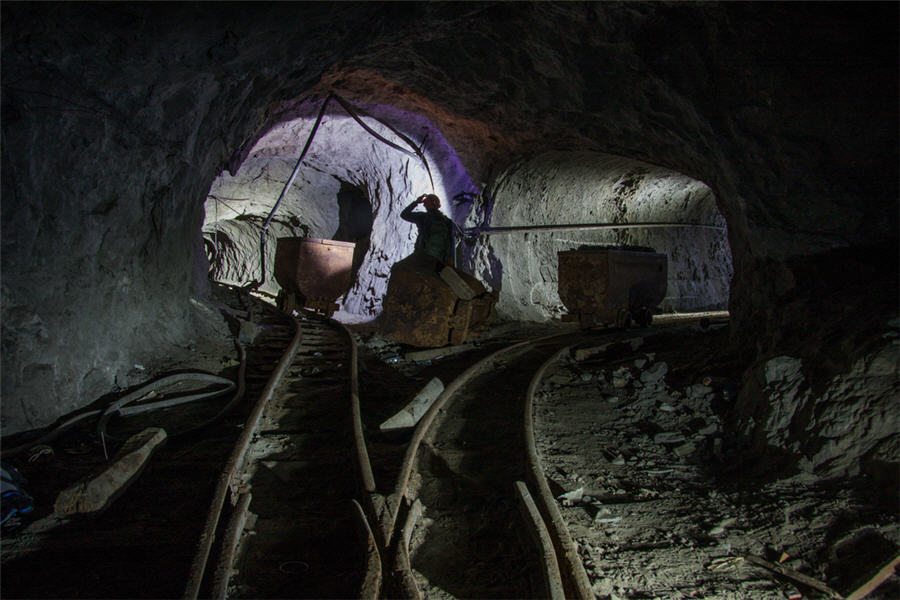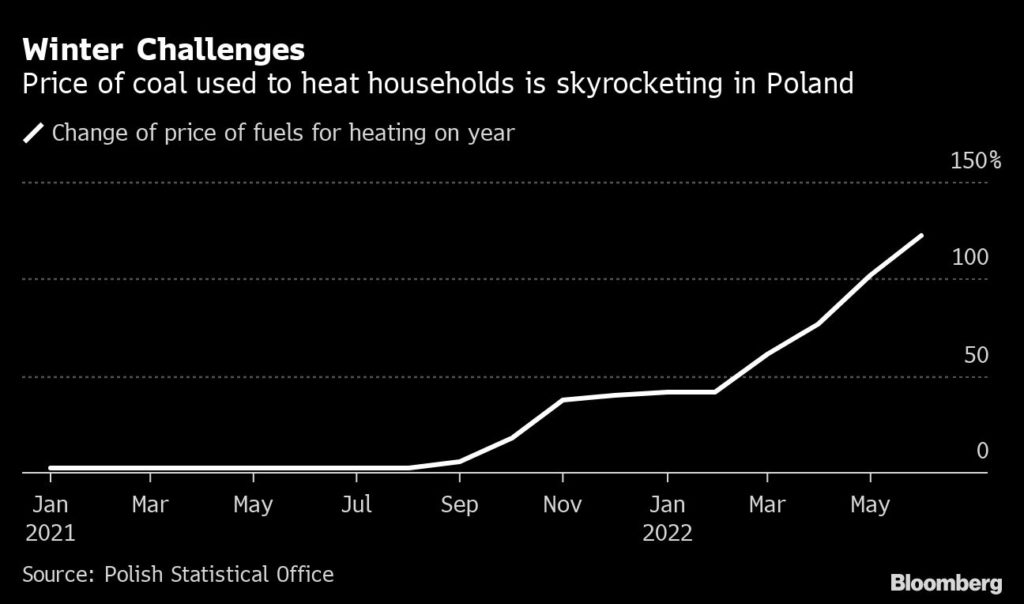Coal-rich Poland rushes to imports as Russian sanctions bite

Poland, the European Union’s top coal producer, is scrambling to fill a potential deficit of the fuel ahead of winter as a ban on Russian imports is set to hurt households and small heating plants the most.
In an unusual move, Prime Minister Mateusz Morawiecki last week ordered two state companies to purchase 4.5 million tons of coal by the end of October to supply households. That’s about a half of what the country had imported each year from Russia before the war in Ukraine started. Now, Poland is hunting for coal in Colombia, Australia and South Africa.
However, the operation is poised to be a challenge, not only because Poland needs to compete with other European countries, which are now relaunching their coal plants amid a gas shortage. Polish Baltic Sea ports and railways are already clogged with military and food transports going to and from neighboring Ukraine.
“We have a chronic shortage of coal today,” Morawiecki told a news conference in Gliwice on Monday before an emergency meeting with the state companies to discuss the shortfall. “Despite an increase of production in mines we may still lack fuel.”

Morawiecki’s decision comes despite Climate Minister Anna Moskwa announcing last month that the country had secured imports of 8 million tons of coal. The energy crunch, together with spiraling inflation and rising interest rates, is quickly turning into a hot-button political issue in Poland ahead of the next year’s general election.
Poland, which uses coal for about 70% of its electricity production, is also dependent on the fuel for heating its homes. The country’s households accounted for 87% of total coal consumed by all of the European Union’s homes in 2019, according to Forum Energii think tank.

Television footage has shown long lines of trucks waiting in front of the mines and distribution centers to buy the fuel or pick up the delivery they ordered online — which is practically one of the few ways to purchase the fuel at the moment.
The internet store of state-run PGG SA, the EU’s largest miner, is opened twice a week: on Tuesdays and Thursdays.
(By Maciej Martewicz, with assistance from Konrad Krasuski)
{{ commodity.name }}
{{ post.title }}
{{ post.date }}




Comments